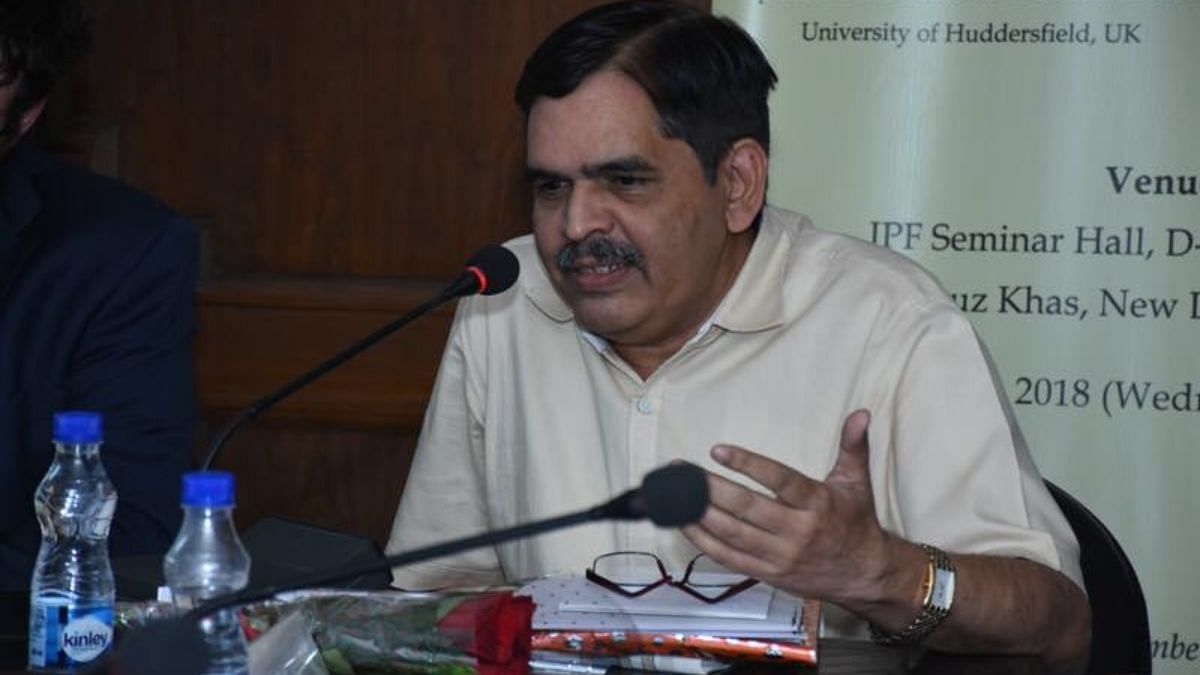New Delhi: The Rashtriya Swayamsevak Sangh (RSS) affiliate Swadeshi Jagran Manch (SJM) wants the Modi government to impose a ‘robot tax’ to compensate those who lose their jobs due to the use of artificial intelligence (AI).
In its wish list submitted to the government during the pre-budget meeting held last month with Union Finance Minister Nirmala Sitharaman, the SJM also suggested imposing a tax on vacant land, as well as incentivising those who are generating more employment.
“The Government may impose tax on use of labour displacing technologies (robot tax), not to discourage the new technology but to cross subsidise those who are losing jobs due to the use of labour displacing technologies. The funds raised can be used to help those displaced to adopt new technologies,” reads the suggestion submitted by SJM to the government, which ThePrint has accessed.
Asked to explain ‘robot tax’, national co-convenor of SJM, economist Ashwani Mahajan, said the key is to make technology advancement without labour displacement.
“The thing is, robots are reducing employment and displacing people. Whole work is being done by robots in many fields. For instance, in automobile companies, a number of jobs are now fully automatic and mechanised, but that is one aspect of manufacturing. This has started in the service sector, too. Whether it is ChatGPT or Meta AI or any other, it has all led to loss of jobs and hence it is an important issue,” said Mahajan.
“Of course, we understand that tech can’t be stopped and that is not the intention at all. But in companies and entities that are making use of AI and displacing labour and earning profit out of it, there has to be some compensation for those who are losing their jobs, or not getting new jobs. This is a burden on the economy and the government, too. The government needs to help them, too, through ration etc. So, in a way, state support is required. So where will the money come from? World over, this issue is gaining traction that a robot tax should be introduced as AI-generated disruption is hitting most economies. It is a new economic thought and, internally, SJM has also started researching robot tax,” he added.
“Robot tax is a general term that can be used for robots for AI or any new tech that is labour displacing. If the government is able to garner that much money which it can use to skill those who aren’t trained in those areas, then job opportunities can be created for them,” he explained.
Another suggestion given by the SJM regarding advancing technology without causing labour displacement was assigning “one critical technology to each district for development”. This approach, he said, would result in development of local talent and overall growth of that district.
A paper released by the IMF in June had argued that fiscal policy has a major role to play in supporting a more equal distribution of gains and opportunities from generative AI. But this will require significant upgrades to social protection and tax systems around the world.
The RSS affiliate has also highlighted the issue of unemployment as it pointed out that tax rate should be decided by employment output ratio. To boost employment growth, SJM has said “tax incentives may be given to industries generating more/additional employment based on employment-output ratio”.
The issue of unemployment and job creation was a major theme in the recently concluded Lok Sabha elections with the Opposition criticising the government for not creating enough jobs.
Also read: After Organiser, VHP bats for common population policy, wants 2-child norm for all in UCC
‘Discourage unnecessary land holdings’
The organisation has also suggested measures to control food inflation by introducing subsidies for micro irrigation systems for small farmers.
With the aim to ensure ‘housing for all’, SJM also suggested introducing a wealth tax on owners of vacant land “to discourage unnecessary land holding on the pretext of future requirements”.
“There is a vast amount of vacant land across the country. In many cases, corporates get a lot of land and they are left unused. So, some disincentive has to be there. Land is a scarce commodity and such a tax will ensure people make use of such land. We need land for housing and small industry and commercial activities. We don’t want to discourage any economic activity but lakhs of hectares of land in prime location is lying vacant and can be made use of in the form of affordable housing and other economic activities,” he added.
On controlling food inflation, SJM said that while the government cannot provide MSP to farmers, certain steps can be taken to ensure remunerative prices.
“There is a general misconception that higher prices given to the farmers will cause food inflation. There is ample research to show that better prices given to the farmers may actually help control inflation, by way of curbing profiteering by the market players. We understand that it is beyond the capacity of the government to provide MSP from the government kitty. We need to find novel ways to ensure remunerative prices to the farmers by using e-markets, modern warehousing facilities with marketable warehousing receipts and modern technology,’ it said.
The SJM has also suggested introducing production linked incentive (PLI) schemes, especially for MSME entities.
(Edited by Zinnia Ray Chaudhuri)
Also read: In 1st budget, BJP govt in Rajasthan promises Khatu Shyam corridor, 4 lakh govt jobs in 5 years

